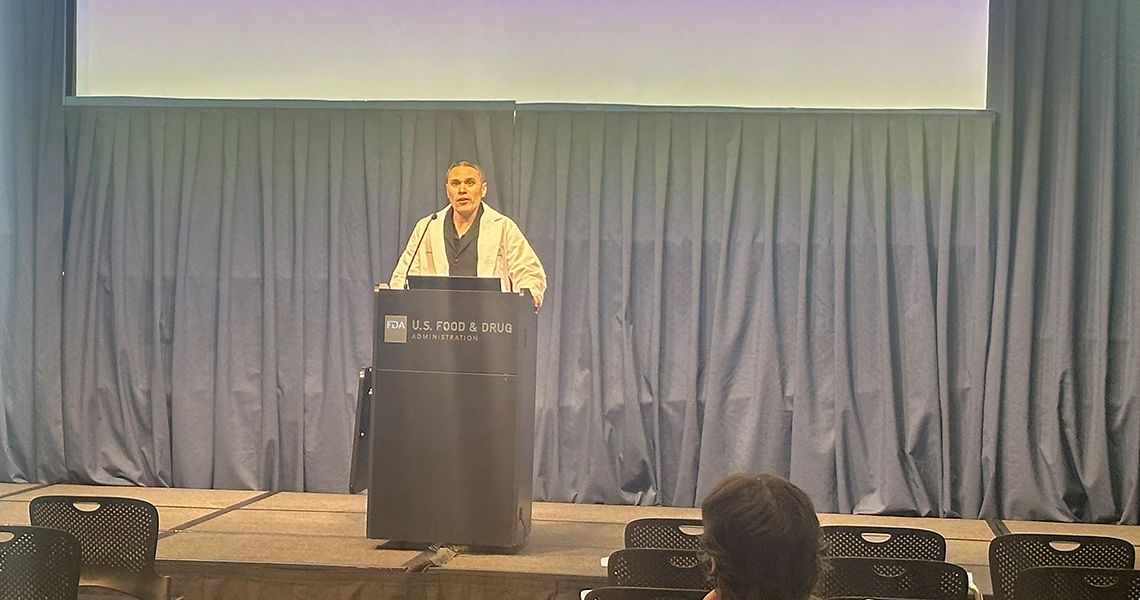Basil Considine, a third-year medical student at the George Washington University School of Medicine and Health Sciences (GW SMHS), recently had the opportunity to address a U.S. Food and Drug Administration (FDA) public meeting regarding the reauthorization of the Generic Drug User Fee Amendments (GDUFA). The meeting, held July 11, brought together FDA leadership, pharmaceutical representatives, and association stakeholders to discuss proposed updates to the legislation.
Considine, currently completing clinical rotations at the GW Regional Medical Campus (RMC) at LifeBridge Health, was the sole speaker to offer perspectives from both patients and providers.
During his hospital rotations, Considine told attendees, he has encountered numerous patients who have stopped taking prescribed medication due to changes in insurance coverage or rising out-of-pocket costs.
“It was heartbreaking how many times I heard some version of that story,” he said.
Often, Considine and the clinical team at Sinai Hospital were able to identify generic alternatives that were covered by patients’ insurance plans, securing three-month supplies or connecting patients with nonprofit resources and enrollment assistance programs to help them manage the costs.
“I’ve had countless patients, and their family members cry when told that we could get them their meds and had found a way to keep getting them in the long term,” he said.
At the hearing, Considine’s remarks highlighted the impact of generic drug availability can have on prescription adherence and patient outcomes. Following his remarks, several FDA officials and industry representatives expressed appreciation for the insights.
“One of the biopharmaceutical representatives told me she was fighting back tears during my talk,” he said. “FDA directors mentioned they were moved and interested in hearing more about how the GDUFA has changed patients’ lives.”
Considine was encouraged to participate in the hearing by Scott Krugman, MD, senior associate dean for the LifeBridge Health/GW RMC, who connected him with Yoram Unguru, MD, clinical associate professor of pediatrics at the GW RMC, for advice on telling the human side of the story. Considine originally chose to study at GW SMHS in part because of its proximity to federal health agencies and policy institutions, adding that the opportunity to speak at the FDA aligns with his broader interest in health policy.
“Since coming to Washington, D.C., I’ve participated in National Institutes of Health (NIH) research, met with my U.S. senator, and now spoken at the FDA,” Considine said. “I’m not sure what’s next, but it’s exciting to be involved



